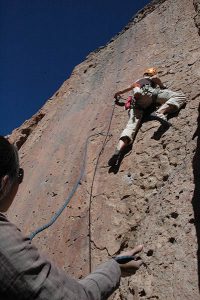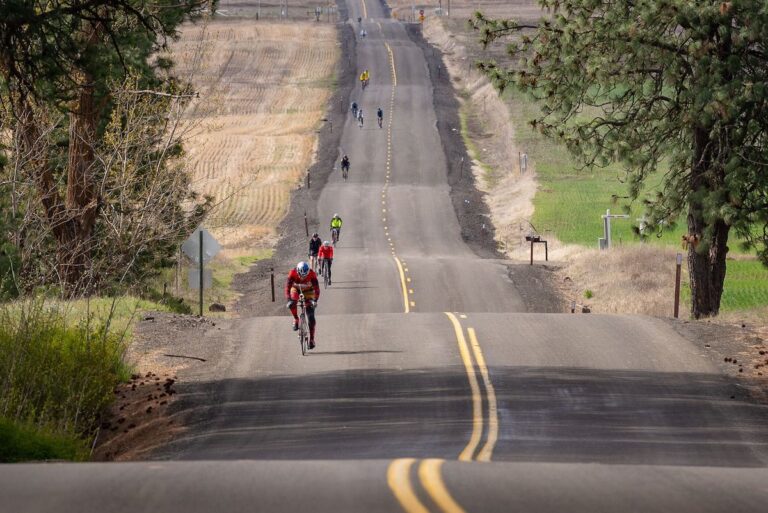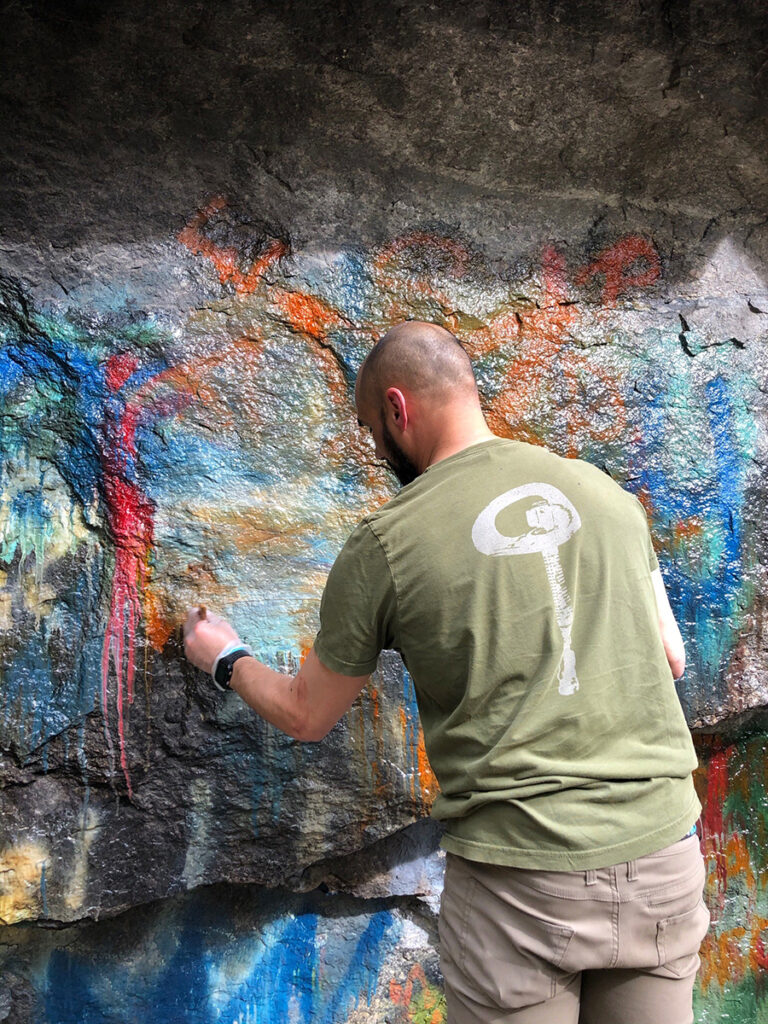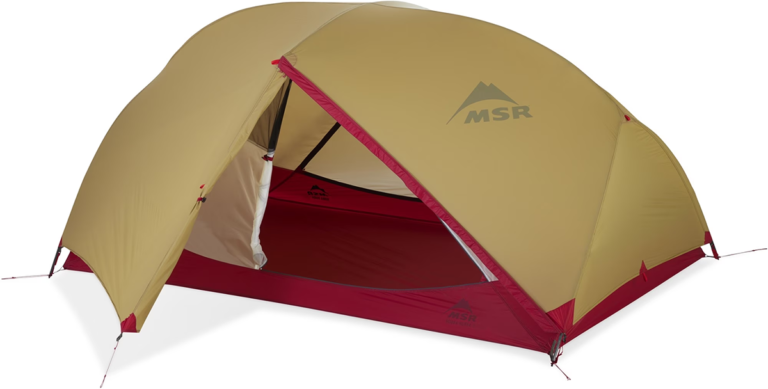I hiked up the steep trail to the top of a volcanic canyon in northern Chile to fetch water, which flowed through a slim canal to the village 10 kilometers downstream. The buzz of altitude and midday desert sun slowed me down, and it was so dry that my sweat evaporated before it could cool me. Another climber, mostly naked and standing in the stream, was pouring water on his head with the same kind of five-liter bottles I intended to refill. The cold water laced down his back and plastered his long hair to his head, and he looked ecstatic as he washed away the grit and heat.
The next day when I returned for the same errand, I met a woman from the village who wore a cardigan, skirt, wool tights, and a hat tied to her head with a coarse ribbon. Only the dark skin of her hands was exposed to the sun. She approached me and said, “Senorita, could you tell everyone that the water is only for drinking?” I said that I would and I apologized, even though I had not been caught bathing in the stream. I realized that camping for weeks in the canyon without formal permission was one thing, but I also saw that we disrespected one of the Atacama Desert’s greatest miracles — the fresh water flowing from the Andes to the ancient towns.
Since this moment years ago, I have been much more aware of the historical and political contexts of the regions where I climb, not to mention localized approaches to land management and development. Fortunately, climbing in the Northwest offers the opportunity to learn many important aspects about the cultural implications of climbing before ever leaving the country.

- Respect local ethics. As Spokane-based climber and developer George Hughbanks pointed out to me this year, “In the Portland area brushing moss off rock is seen as sacrilege, while in Spokane if you don’t thoroughly clean a route it is seen as lazy.” Noticing and respecting the diversity of localized development can nurture your ability to pay attention to your surroundings and help you become a respectful global citizen when climbing abroad. A practice of observation and awareness can help you infer cultural practices. It’s how I learned, for example, that water is more than a vital resource; for many people in the world, its significance resonates on a spiritual level. Here’s another bonus: paying attention not only informs cultural sensitivity, but it can also save your life in the hills.
- Be honest about your abilities. The ubiquity of climbing gyms and climbing films featuring ripped men and women doing hard projects have made us more obsessed with the rating of a climb. However, climbers who have sampled grades from many different crags and mountain ranges know that ratings are highly subjective. It took me several years of climbing in the Cascades to understand my abilities and tolerance for risk in different environments. Fortunately, Washington boasts opportunities to experience many styles of climbing and disparities in rating systems.
- Don’t expect a bail out. While official statistics are difficult to find, dozens of international hikers and climbers are rescued from perilous but often preventable situations across the New Zealand wilderness each year. In May I spoke with a staff member from Egmont National Park, home to the popular Taranaki Volcano, who said that search and rescue had been dispatched eight times in April alone. This kind of demand takes a serious toll on the small but dedicated and highly qualified team of volunteers who often put their lives on the line.
- Be ready to interpret sparse beta. Some of the routes in Fred Becky’s Cascade Alpine Climbs are a good introduction to climbing with limited information, but in many parts of the world you can expect much less. Even the New Zealand Alpine Club’s route database, which is the most comprehensive in that country, has very limited information about most of the frequented climbs in the Southern Alps. This is not for a lack of will or resources; the kiwis are keen to keep climbing an adventure, and over-narrating routes is not their style. //
Summer Hess is a writing instructor at Eastern Washington University and manages special projects for the Community Building. She profiled swimmer Susan Hales in March.












